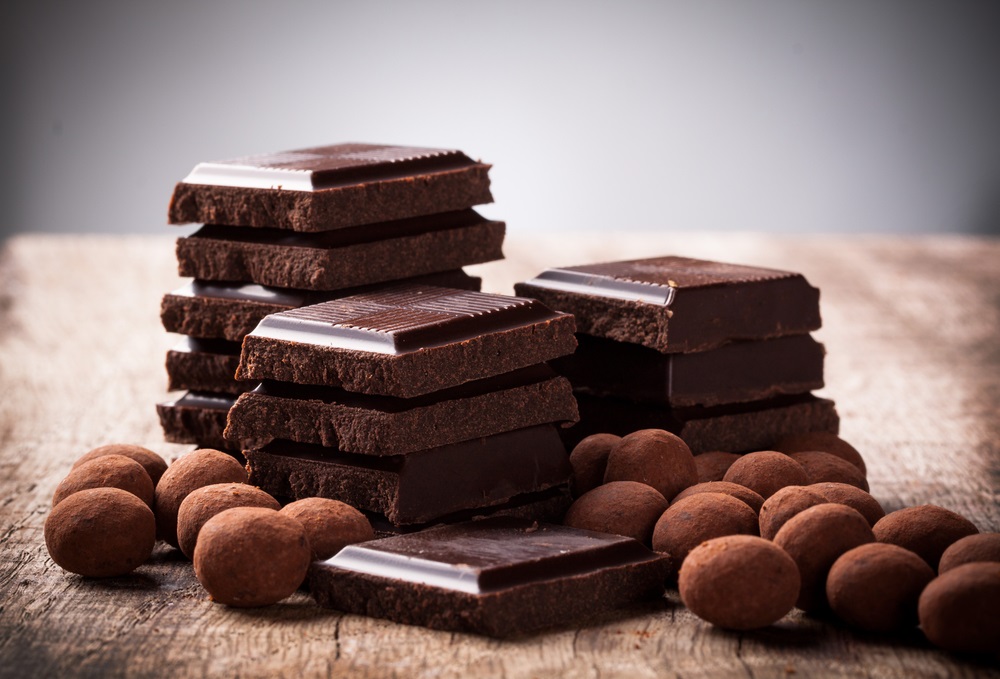Chocolate has long held a special place in our food culture. For some, it’s an after-dinner ritual, for others, a way to relieve stress or sweeten a difficult day. And although its taste is hard to compare to anything else, much controversy has arisen around this product. Do we really have to treat every square of it as a nutritional sin?
Chocolate can support health – provided you choose wisely
The most popular chocolates that fill supermarket shelves are mostly composed of sugar, milk powder, and additives. Their nutritional value is negligible, and excess of such products easily leads to weight gain and metabolic problems. The situation is completely different when we reach for chocolate with a high cocoa content – preferably above 70%. This raw material is a true wealth of bioactive ingredients.
The polyphenols present in cocoa beans act as natural antioxidants, supporting the circulatory system and protecting cells from oxidative stress. Magnesium helps relieve tension and fatigue, while theobromine improves concentration and can have a mild stimulating effect – without the caffeine kick.
How to recognize healthy chocolate? A few practical tips
Do you need a dietitian to distinguish good chocolate from mediocre chocolate? Not necessarily. Just read labels carefully. Here’s what to look for:
- Ingredients – the shorter and simpler, the better. Cocoa (or cocoa mass) should be listed first, not sugar.
- Fat – natural cocoa butter, without added palm oil or hydrogenated fats.
- Cocoa content – preferably 70% or more. This is an indicator of quality, but also of flavor intensity.
- Sweeteners – minimal cane sugar or natural alternatives such as xylitol or erythritol.
- Additives – nuts, dried fruit (preferably freeze-dried), spices. No artificial flavors or milk
- Certifications – quality marks like Fair Trade, Organic, or Rainforest Alliance indicate the ethical and natural origin of raw materials.
Which chocolate is the best choice? Dark, milk, or perhaps vegan?
The clear leader among healthy chocolates is dark chocolate. Its high cocoa content means even a small piece will fill you up and satisfy your sweet tooth. It also has a more stable effect on blood sugar levels, which is important for those watching their blood sugar levels or following low-carb diets.
Milk chocolate has its fans, but it’s worth knowing that it contains less cocoa and significantly more sugar. If you choose it, choose versions with a short ingredient list, without unnecessary additives, and with a higher cocoa percentage than the standard 30-40%.
A growing number of vegan chocolates are also appearing on the market – without cow’s milk, but instead containing plant-based beverages such as coconut or rice milk. This is a good option for those with lactose intolerance or consciously avoiding animal products. It’s worth remembering, however, that a vegan ingredient doesn’t guarantee quality – you need to read the label just as carefully.
Chocolate in your daily diet – how to eat without regrets?
The most important thing is your approach – chocolate shouldn’t be an impulse, but an element you consciously incorporate into your diet. What does this mean in practice?
- A small piece after a meal instead of a whole bar between lunch and dinner.
- A healthy addition – oatmeal with a square of dark chocolate, a cocoa smoothie, a homemade cake made with good ingredients.
- Mindfulness – it’s worth eating slowly, savoring the taste. This will help you feel full faster and avoid reaching for more than you need.
Remember also that healthy chocolate isn’t the kind we eat in large quantities every day, but the kind we choose wisely – and consume with pleasure, not guilt.
Where to find truly good chocolate?
There are a growing number of chocolates available on the market that combine natural ingredients with exceptional flavor. It’s worth choosing products from trusted suppliers and stores that specialize in healthy food and a conscious approach to shopping. If you’re interested in healthy eating and want to introduce nutritious products into your diet, check out healthy chocolate in 4ecoshop.

